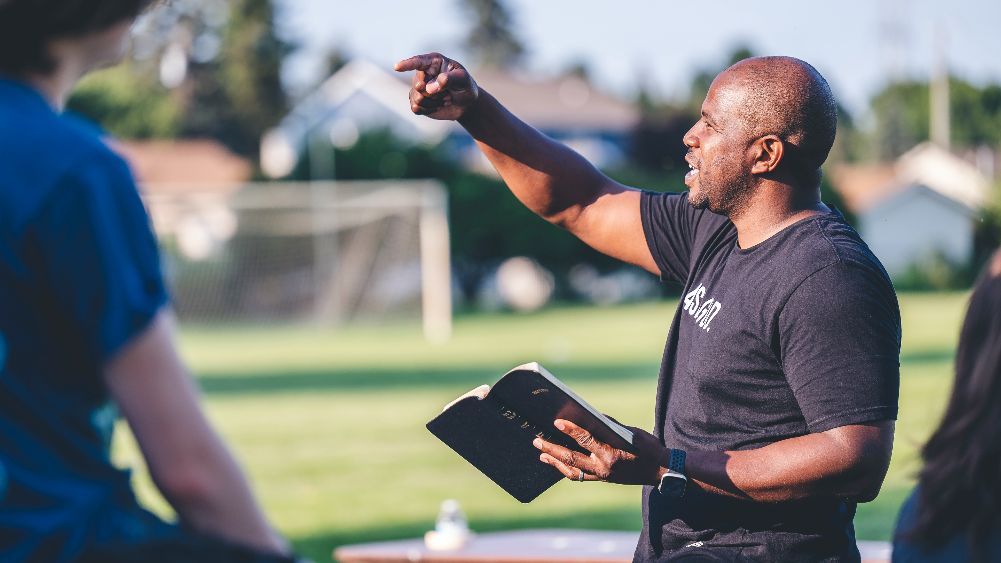A recent book from Fontes Press (How to Preach Apocalyptic, by Ryan Boys) gives 8 principles for a philosophy of preaching. Provided in an appendix, these principles are meant to supplement the rest of the book, which talks about principles for preaching apocalyptic literature. So, here are the first four. Watch for the next four in the next post.

Sermons are like jars of clay: even the best are far from perfect. Even though they bear the flaws of the preacher, God is still pleased to graciously work through humble servants and their earthly efforts. The more I preach, the more I witness confirmation that the Spirit must supernaturally illuminate the Word of God in the hearts of people in spite of our feeble attempts to explain and apply it. There is no formula or process that can guarantee this, apart from actually preaching from the Scriptures.
Even a brief survey of the field of homiletics reveals a plethora of approaches to preaching. Given that this book is a homiletic study, it is only fair to put my cards on the table and communicate my philosophy of preaching in order to help the reader understand my approach to the craft of preaching. Preachers from different backgrounds and ministry contexts with different personalities will preach the same text from the Bible in different ways. Therefore, my philosophy of preaching is not so much a commitment to a particular style of sermon; instead, I aim for eight specific sermon values.
(1) Rooted in Exposition
An expositional sermon is a sermon in which the main idea of a text of Scripture is the primary point of the sermon, and ideally the sermon would show the congregation how. This is where all the original language, grammar, history, genre awareness, and literary analysis pay off in studying a passage. Mark Dever corrects the often-repeated misunderstanding of expositional preaching as running commentary:
“Expositional preaching is not simply producing a verbal commentary on some passage of Scripture. Rather, expositional preaching is preaching that takes for the point of a sermon the point of a particular passage of Scripture.”
[ … ]
(2) Crafted in Light of the Genre
The form, content, and tone of the sermon should be influenced by the genre of the preaching portion. Given the focus of this volume this value should come as no surprise. Specifically, the sermon should not merely teach the truth of the passage; it should do so in a way that takes into account its rhetorical form and purpose. Thomas Long observed that biblical passages are not merely “containers for theological concepts,” rather “…they are means of communication.”
(3) Informed by Biblical Theology
The sermon’s content and main idea should be nuanced in light of the whole of the Scriptures. It is easy to become so focused on the trees in any passage in question that the forest of Scripture is lost. In this I want to be aware of NT-OT connections, as well as the way certain themes are developed in the whole of the canon.
David Helm helpfully suggests using four “categories of connections” to discern Biblical theology: prophetic fulfillment, historical trajectory, themes, and analogies. These are not hard-and-fast categories, but they help make clear how a topic in one passage relates to the rest of the canon.
(4) Saturated with Application
A sermon should be infused with specific suggestions and examples of how the passage should be believed, applied, or obeyed. I want never to leave people saying: “That was nice, but what should I do about it?” John Bettler reminds us that preaching is application:
“Preaching is driving home the Word of the living God to the lives of His people. It is declaring ‘Thus says the Lord’ to people who constantly hear other claims for allegiance and direction…Until the preacher has that vision, sees his task in that light, and structures his sermons by that rule, he is not preaching.”
[ … ]
Stay Tuned for More
Stay tuned for our next email where we’ll uncover the remaining principles that complete this transformative approach to preaching. In the meantime, as part of our book launch, you can buy How to Preach Apocalyptic at an exclusive 32% discount if you buy direct for only $14.95. (That’s 32% off the retail price of $21.95 on Amazon.)
Get Your Copy Today!
Whether you buy direct (best deal), from FontesPress.com, or from Amazon, we trust you’ll look forward to your next opportunity to preach a sermon series on an apocalyptic book!


One comment